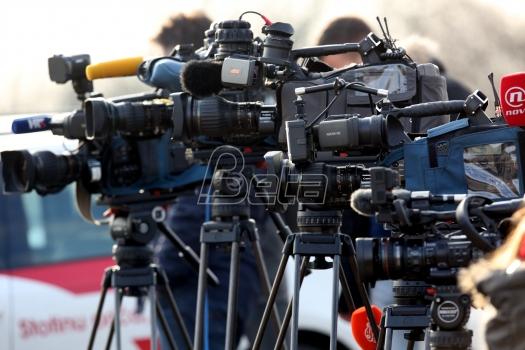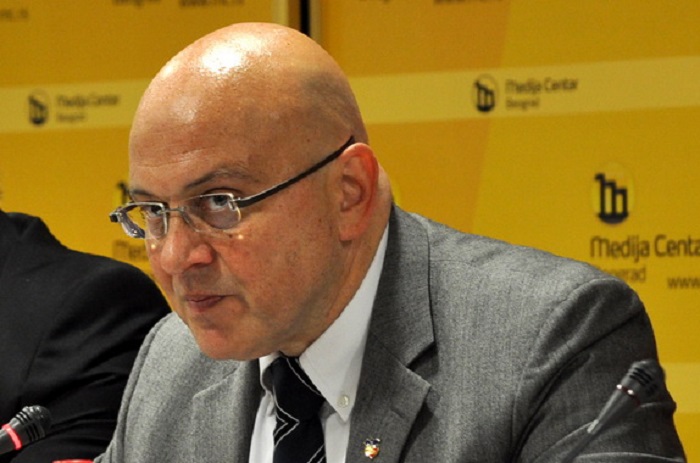BELGRADE, 12.02.2018. – Reporters on corruption and organised crime in the Balkans are subject to a range of different pressures and challenges – as our comparison of reporting on such cases in Bosnia, Kosovo and Serbia shows.
Organised crime and corruption are among the key challenges facing the societies of the Western Balkans, with corruption in particular being a key grievance for ordinary citizens and voters.
As in any democracy, the media play a crucial role when it comes to informing the public on these subjects and shaping public debates.
The extent to which the media are able to do so objectively and independently will help the public to both better understand the scale of the problem and assess what their elected representatives and institutions, tasked with upholding the rule of law, are doing to combat organised crime and corruption.
During 2017, BIRN conducted a regional study that examined how the media report on organised crime and corruption in Bosnia and Herzegovina, Kosovo and Serbia.
Aside from the looking at how media report on the topic, the study also sought to unpack why media report on organised crime and corruption in the way they do.
Specifically, our study sought to identify the challenges and constraints faced by media organisations across the region when it comes to reporting on organised crime and corruption.
Key Findings
Across Bosnia, Kosovo and Serbia, one of our key findings is that external pressure – whether from political, business or criminal circles – is an important factor, which shapes and constrains how the media report on organised crime and corruption. At the same time, the way in which this pressure manifests itself and constrains the work of journalists and media outlets varies across the region.
The purpose of this instrumentalisation is not only to paint a picture of a government actively engaged in fighting organised crime and corruption, but, more worryingly, to attack and discredit opponents – and even allies – of the ruling party.Serbia stands out as the most extreme case, with media reports on organised crime and corruption widely seen as instrumentalised by the ruling elite in its efforts to maintain power through methods that go beyond what can be considered acceptable in a consolidated democracy.
This instrumentalisation of the media also serves to put pressure on prosecutors and judges, with the goal of ensuring a desired outcome in specific cases.
A similar situation is evident in Bosnia, where instrumentalisation of media reporting on organised crime and corruption, by a range of political factions, is clear. However, there are differences between the situation in Bosnia and in Serbia.
In Serbia, media reporting on organised crime and corruption is instrumentalised overwhelmingly by one political camp – the ruling party; in Bosnia, different competing political camps have successfully instrumentalised different sections of the Bosnian media.
In Kosovo, the media are also exposed to external pressure and influence, originating from politics as well as public and private enterprises, when it comes to reporting on organised crime and corruption.
However, there does not appear to be any clear evidence that instrumentalisation of media reporting on the topics is a widespread phenomenon.
Pressure on the media appears more often to be directed towards suppressingreporting that could be damaging to influential politicians and businessmen rather than encouraging reporting on the corrupt or criminal practices of rivals, as often appears the case in Bosnia and Serbia.
Access to information
Difficulties in accessing information and sources – both formal and informal – were found to be another crucial factor constraining the ability of the media to report on organised crime and corruption across the region.
In all three countries, journalists rarely complain about the lack of legal provisions for accessing information from officials and institutions. On the contrary, their complaint is that in practice institutions are often passive, or closed, when it came to communicating with the media.
An important finding of BIRN’s research is that in all three countries there is a lack of uniformity and consistency when it comes to how institutions and officials communicate with the media.
Frequently, even if formal strategies or guidelines exist on how rule of law institutions and officials should communicate with the media, they are not implemented. Often, such rules do not exist, or are not clear.
All of this has created a very mixed picture where, for example, one court or prosecutor’s office may be very open to media requests for information, while another may be extremely closed and non-responsive.
In such cases, our research found that personal contacts and the professionalism of particular media outlets or journalists also affect access to information, positively or negatively. This was particularly the view in Kosovo.
Independent journalists there who specialise in reporting on the topics in question are seen as having generally better access to information than others.
The political affiliation of particular media outlets is a key factor affecting access to information and sources, both official and unofficial.
Indeed, this appears to be a particularly important determinant of access to information in Bosnia and Serbia, while the data gathered suggests that it is not a key factor in Kosovo.
While some interlocutors in Kosovo claimed that media close to the government have better access to information and sources, those journalists interviewed largely rejected such claims. Serbia again presented an extreme case.
Access there to information, formal and especially informal, was strongly correlated with the closeness of a media outlet to the ruling party.
Indeed, many of those interviewed by BIRN openly talked about the existence of “privileged” media that enjoy preferential access to information.
A more complex picture emerges in Bosnia. The political affiliation of a media outlet there does affect access to information.
However, given the many levels of government and the large number of parties holding office at different levels of government in Bosnia, few media outlets were completely shut out of accessing information.
Professional challenges
Limited professional and technical capacities, along with security concerns, were a common constraint on media reporting on organised crime and corruption identified across Bosnia, Kosovo and Serbia.
|
Methodology
BIRN’s findings and research, presented in the three country reports, were built on a mix of in-depth interviews and media monitoring carried out during the first half of 2017.
In-depth interviews were conducted with 72 individuals during this period, of which 29 were in Bosnia, 22 in Kosovo and 21 in Serbia.
Among those interviewed were a range of current or former judges, prosecutors, policemen, lawyers, editors, journalists, politicians and experts. Most interviews were conducted in person, while in some cases, particularly in Kosovo, interviews were often conducted via email.
Where interviewees requested anonymity, we have refrained from naming them. In Bosnia, all interviews were conducted under the condition of anonymity. It should be stressed that the statements of interviewees have been carried as their views and observations, rather than as proven facts.
In addition to the in-depth interviews, BIRN also carried out a detailed media monitoring of reporting on organised crime and corruption investigations, arrests and court proceedings in all three countries.
The results of this media monitoring have been presented in the annexes to the country reports, as well as in the reports themselves, where appropriate.
The media monitoring was carried out from April to June 2017 and involved six media outlets in Bosnia and Serbia respectively and five in Kosovo.
The monitored media outlets were chosen in order to include a representative mix of electronic and printed, tabloid and non-tabloid media.
|
Journalists from Bosnia and Kosovo in some cases referred to fears for their own physical security as a constraint when writing on organised crime and corruption.
In particular, they referred to threats emanating from criminal circles in their respective countries, or the fear of receiving such threats.
Interestingly, such complaints were heard less often from journalists in Serbia, where self-censorship seemed a more fundamental constraint.
A common constraint on journalists in all three countries was fear of losing their jobs if they did not practice self-censorship, or if they persisted in writing on certain topics related to organised crime and corruption.
In all three countries, journalists and editors frequently complained about the lack of time and resources that they could devote to reporting on these topics. This, in turn, prevented them from investigating, or following, cases of organised crime or corruption in greater detail.
Another clear problem was the limited skills, knowledge and expertise of many journalists when it came to reporting on organised crime and corruption. On this point, opinions and perceptions varied a great deal, however.
A significant number of those interviewed as part of BIRN’s research, particularly those from the police, judiciary or prosecution, expressed a view that journalists often lacked the professional skills to report on organised crime and corruption. This was seen as a key obstacle to better reporting on these topics.
Many journalists agreed with such comments, noting that they often felt under-qualified to report on organised crime and corruption, particularly when it came to complex court proceedings.
Journalists working in electronic media complained in particular that they were unable to specialise in particular topics, unlike some of their colleagues in the print media.
However, it must be stressed that most of those interviewed as part of BIRN’s research – whether journalists or non-journalists – agreed that while many journalists lacked the professional capacities to report on organised crime and corruption effectively, there were also many excellent journalists in both Bosnia, Kosovo and Serbia who were entirely capable of investigating and reporting on these topics to a high standard.
In this context, interlocutors from Serbia in particular expressed the view that whatever the professional shortcomings of Serbian journalists, this was not the primary reason for the lack of good quality reporting.
Rather, in one way or another, they expressed their view that, particularly in the mainstream media, good journalists were held back from doing their job professionally due to political and other forms of pressure on media outlets. Similar sentiments were voiced in Bosnia and Kosovo.
The report was published as part of a project entitled ‘Exercising Freedom of Expression and the Openness of State Institutions in Bosnia and Herzegovina, Kosovo and Serbia’.
The project was implemented by the Balkan Investigative Regional Reporting Network – BIRN Hub, in partnership with BIRN Serbia and BIRN Kosovo, from April 2017 to January 2018, in Bosnia and Herzegovina, Kosovo and Serbia. It was supported by German Federal Foreign Office Stability Pact funds.


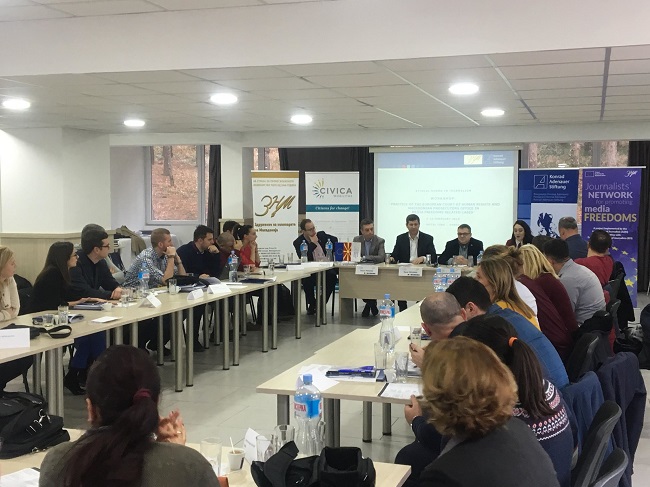
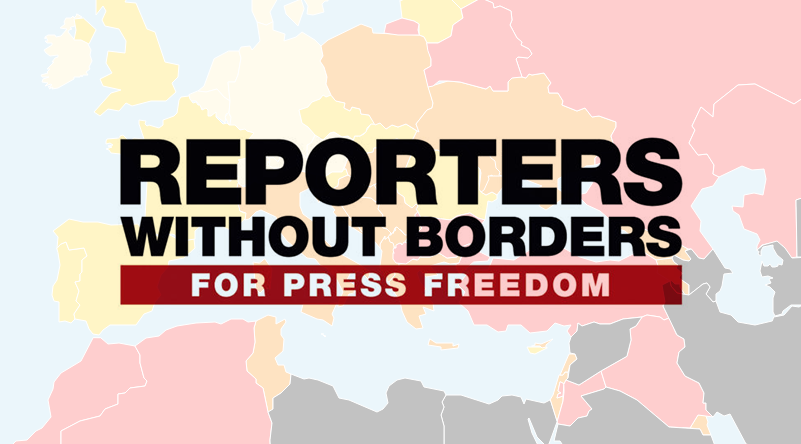
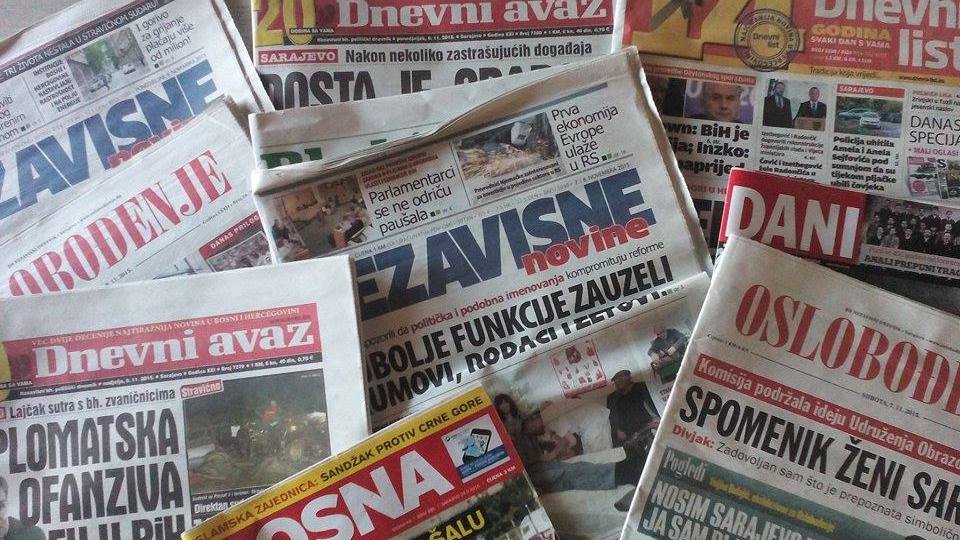


 This article has been produced as a part of the project Western Balkan’s Regional Platform for advocating media freedom and journalists’ safety with the financial assistance of the European Union. The contents of this article are the sole responsibility of the Independent Journalists’ Association of Serbia and its authors, and can in no circumstances be regarded as reflecting the position of the European Union.
This article has been produced as a part of the project Western Balkan’s Regional Platform for advocating media freedom and journalists’ safety with the financial assistance of the European Union. The contents of this article are the sole responsibility of the Independent Journalists’ Association of Serbia and its authors, and can in no circumstances be regarded as reflecting the position of the European Union.